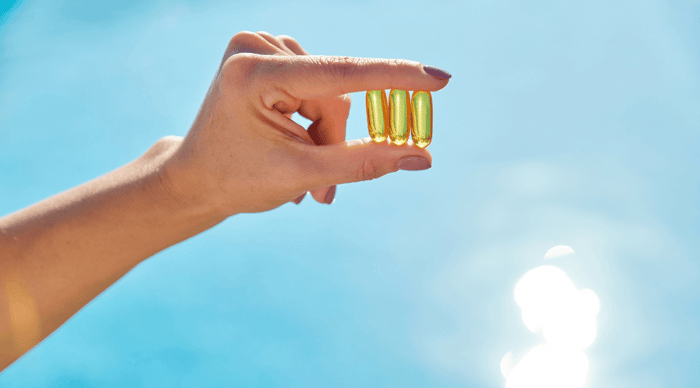When you think of vitamin D, you might picture a supplement you reach for in the winter - when the sun hides and the days get short. But here's the truth: vitamin D isn’t just a seasonal nutrient. For individuals, especially those between 35 and 55, it plays a vital, year-round role in everything from immune strength to mood balance and hormone health.
And if you live in the UK - or anywhere in the Northern Hemisphere - you might not be getting as much of it as you think.
Discover our vitamin D or check out even more educational articles and videos.
Why Vitamin D Deficiency Is So Common
Vitamin D is known as the “sunshine vitamin” because your skin synthesises it when exposed to UVB rays from the sun. But here’s the catch: in places like the UK, sunlight strong enough to trigger vitamin D production is only available between April and September, and even then, only during certain hours of the day - typically between 11am and 3pm.
Add in our modern lifestyles (working indoors, using SPF, long winters, and cloudy skies), and it’s easy to see why up to 1 in 6 adults in the UK are deficient in vitamin D (1).
Why Vitamin D Is So Important (All Year Long)
Vitamin D is involved in much more than bone health. It acts like a hormone in the body, supporting:
-
Immunity: Helps fight infections and reduces inflammation
-
Mood & mental wellbeing: Low levels are linked to seasonal affective disorder (SAD), depression, and fatigue
-
Hormone balance: Plays a role in regulating oestrogen, progesterone, and thyroid hormones
-
Muscle function: Supports strength and reduces injury risk
-
Calcium absorption: Crucial for bone density, especially as oestrogen begins to decline (2)
Why Sunlight Isn’t Always Enough
Even on sunny days, if you’re sitting by a window, driving in your car, or wearing sunscreen (which blocks UVB rays), your skin isn’t producing vitamin D. And in the autumn and winter months, UVB radiation is too weak in the UK, no matter how clear the sky.
That’s why many experts now recommend year-round supplementation, especially for women who work indoors, have darker skin tones, or are over 40 (as natural production declines with age).
How to Supplement Smartly
The NHS recommends 10 micrograms (400 IU) daily during autumn and winter; however, vitamin D experts suggest higher doses (5,000-10,000 IU daily) for optimal wellbeing - especially if you’re deficient. Always speak to your health practitioner and test your levels first if you can, and look for vitamin D3 as calcifediol for better absorption and bone support.
Pair it with a meal containing healthy fat to boost bioavailability.
Final Thoughts
Vitamin D isn’t just a winter essential - it’s a wellness essential. In our screen-filled, indoor world, it’s easy to overlook - but your mood, immune health, hormones, and bones depend on it.
Adding a high-quality vitamin D supplement to your routine may be one of the simplest, most impactful things you do for your long-term vitality.
Enjoyed this guide? Now read...
Top 20 low histamine foods to try
Everything you need to know about high-histamine foods
Histamine: what is it and why is it important?
References:
-
NHS. (2023). Vitamin D and health: official guidance
-
Journal of Clinical Endocrinology & Metabolism. (2020). The Role of Vitamin D in Hormonal Health
-
Public Health England. (2016). Vitamin D: Advice on Supplements for at-risk Groups





